◊ By Praveen Gupta
Note: For contact details of Indian Organic Ingredient Suppliers, buy the Organic Directory
The Indian organic industry has gained a global footprint with exports to locations worldwide, including the U.S., European Union (EU), and South Asia, mainly due to consumers who prefer organic products over non-organic counterparts.
India plays a crucial role in supplying organic commodities, providing about 27% of the global supply.
The prevalence of the Covid-19 pandemic further highlights the significance of nutritious food in boosting the immune system more than ever.
This rise in demand makes it crucial for Indian organic exports to fill in the global requirement.
Like their non-organic counterparts, organic products are susceptible to infestation by insects such as weevils and beetles when shipped over long distances. These pests feed on the food and can quickly ruin the entire shipment.
While the pest threat on organic shipments is similar to non-organic commodities, the means of control are far different because of certain restrictions on the steps and tactics for pest management.
Organic commodities must be kept free from chemicals as they travel from farms to tables. The safe and proven effective way to exterminate pests on organic exports is through a pest management system that utilises carbon dioxide (CO2) as a medium of fumigation.
For many years, carbon dioxide has been used as an organic alternative to synthetic pesticides. The gas is purchased from a commercial supplier and applied in controlled doses, which helps ensure that it will be absorbed evenly by all the organic goods being fumigated.
When carbon dioxide is applied, organic goods are placed in a sealed chamber and exposed to the gas for a specific time until they are removed from the chamber by an organic inspector (who ensures that no insects remain).
Adding carbon dioxide inside the chamber replaces the oxygen to achieve a low oxygen condition, which is toxic to insects when maintained over a given period. This leaves no residue behind on organic products, which can affect their quality during transit or shipping. Organic inspectors have proved that carbon dioxide fumigation is the safest way to export organic goods.
BEST PRACTICES IN CARBON DIOXIDE FUMIGATION
For fumigation experts, a sound pest management system begins with prevention, exclusion, sanitation, and monitoring to ensure organic commodities stay organic and free of infestation.
Fumigators recommend exercising control immediately, as soon as the goods arrive at the facility, before taking them inside. They also recommend performing the procedure in a closed chamber on-site in organic facilities rather than facilitating whole-structure carbon dioxide-based fumigation on extensive facilities, which is not cost-effective.
Organic processors can save on unwanted freight costs by performing the fumigation in-site versus sending the goods to a fumigation facility before shipment.
A technology called GrainPro Cocoons is a facility used by organic producers and exporters like Mehrotra Consumer Products Private Limited and Suminter India Organics to perform on-site carbon dioxide fumigation on basmati rice, coffee, and organic spices such as chillies, turmeric and ginger.
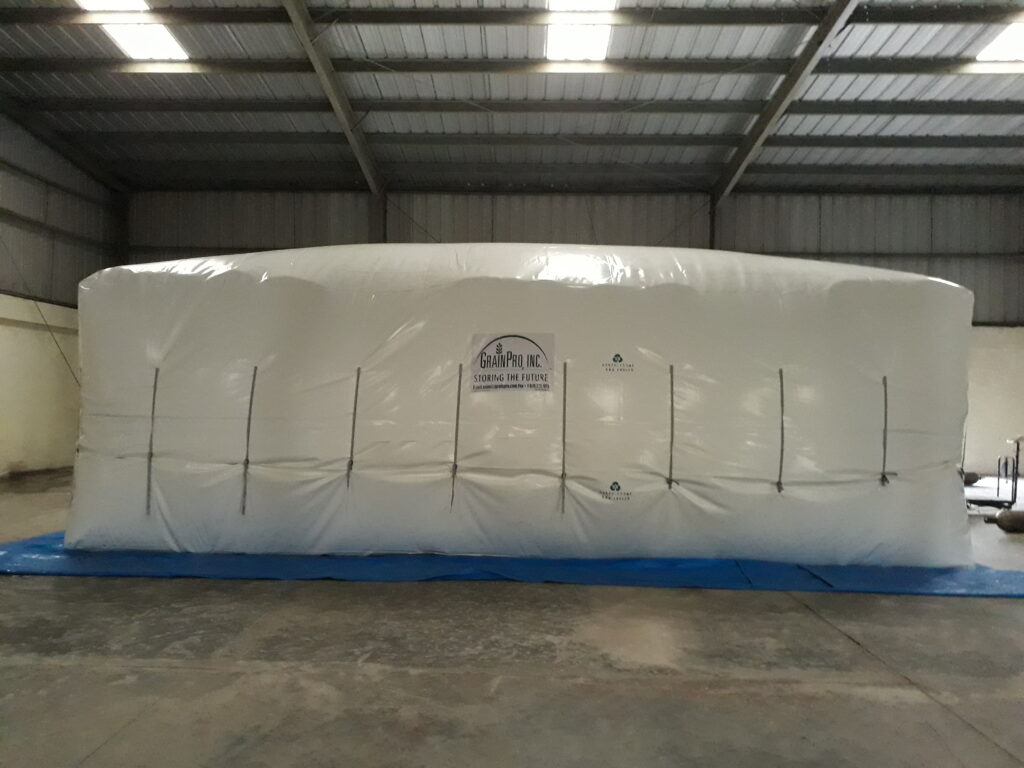
‘GrainPro Cocoons’ are used by organic producers and exporters to perform on-site carbon dioxide fumigation on basmati rice, coffee, and organic spices such as chillies, turmeric, ginger, etc
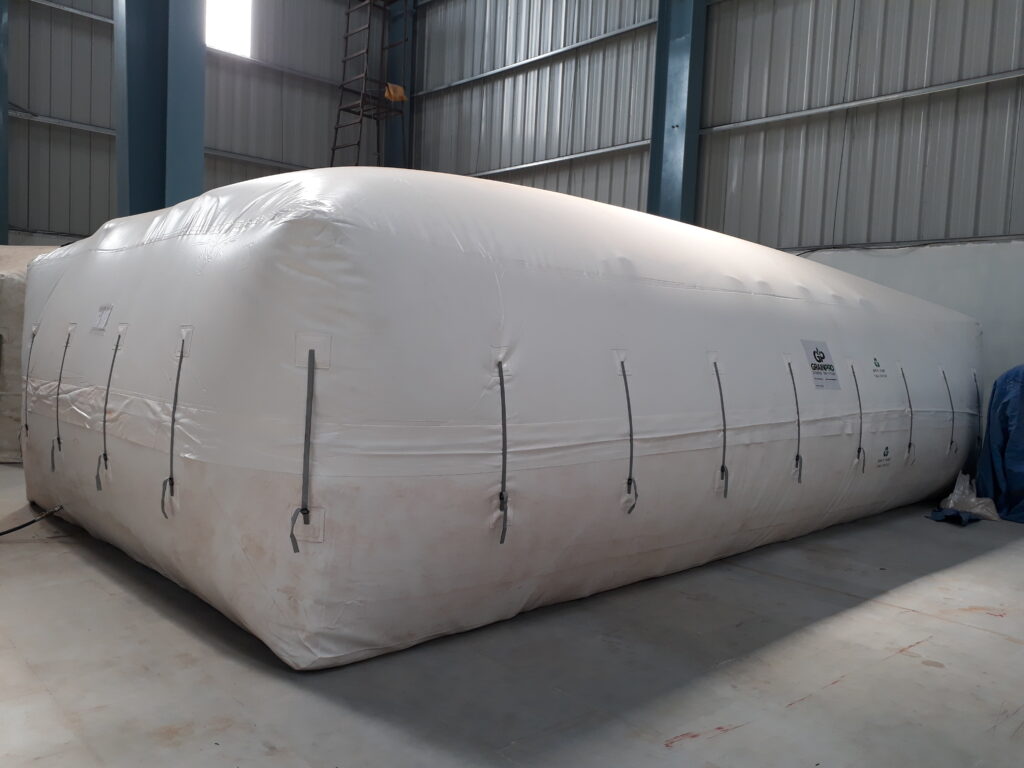
GrainPro Cocoons are also used to store commodities for the long-term while naturally keeping them from infestation by maintaining a low oxygen environment
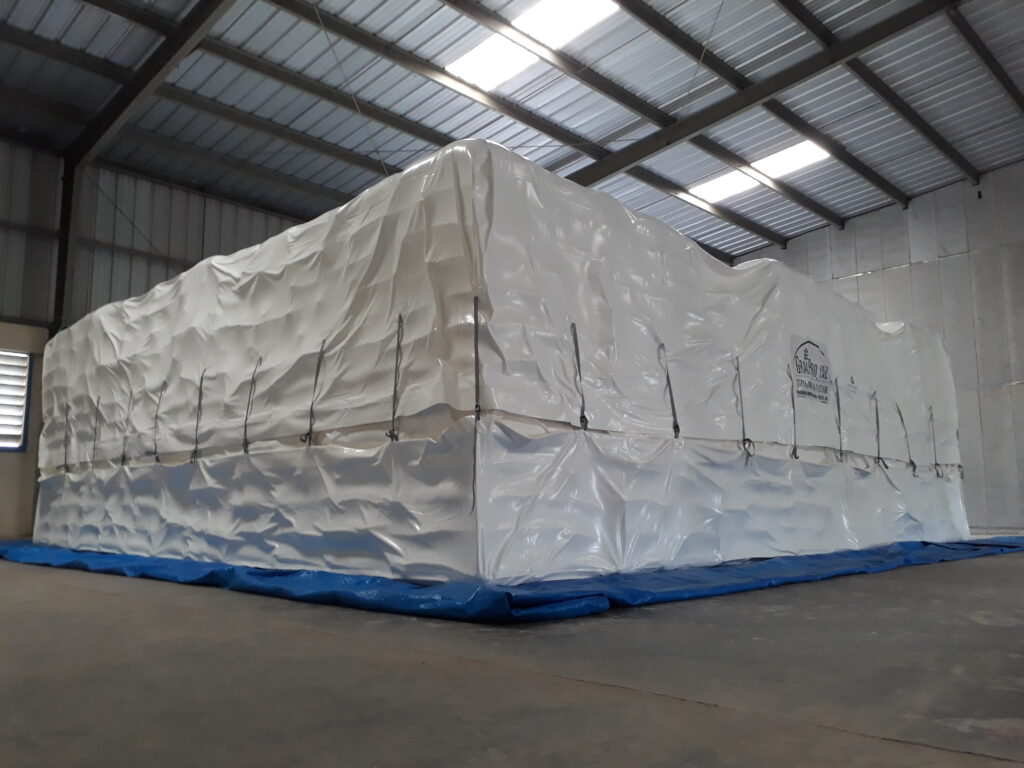
The cocoons are made from durable plastic material with low permeability to moisture, as well as, with gas barriers—functioning as a sealed chamber
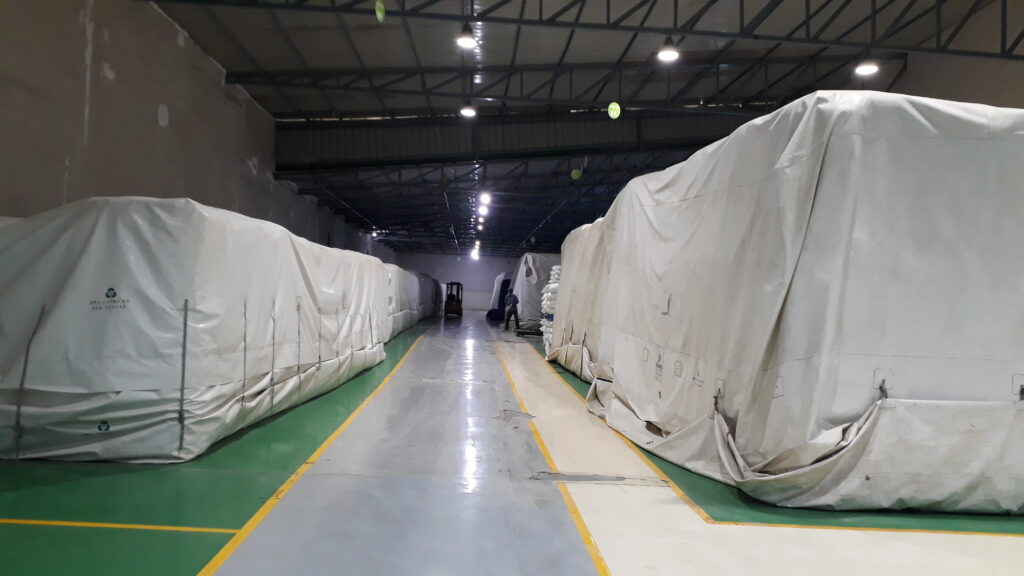
When used as storage for longer periods, the GrainPro Cocoons can achieve a low oxygen environment even without using carbon dioxide
GrainPro Cocoons are also used to store commodities for the long-term while naturally keeping them from infestation by maintaining a low oxygen environment.
The cocoons are made from durable plastic material with low permeability to moisture, as well as, with gas barriers—functioning as a sealed chamber. When used as storage for longer periods, the GrainPro Cocoons can achieve a low oxygen environment even without using carbon dioxide.
The natural respiration of commodities inside the cocoons (and trapped insects) depletes oxygen and replaces it with carbon dioxide. When used as a fumigation facility, GrainPro Cocoons require 75% less carbon dioxide gas versus regular tarpaulin makeshift chambers because the cocoons can maintain the required CO2 level in controlling insect infestation.
Unlike vacuum sealing, the cocoons do not need expensive machines to suck the air out of the container to create low oxygen concentration, which is insecticidal to all pests.
They are also more efficient for fumigation with inlet ports for CO2 purging, as well as, for outlet ports for releasing oxygen to achieve a low oxygen environment. The gas monitoring ports also allow for ease in monitoring the oxygen level inside the facility.
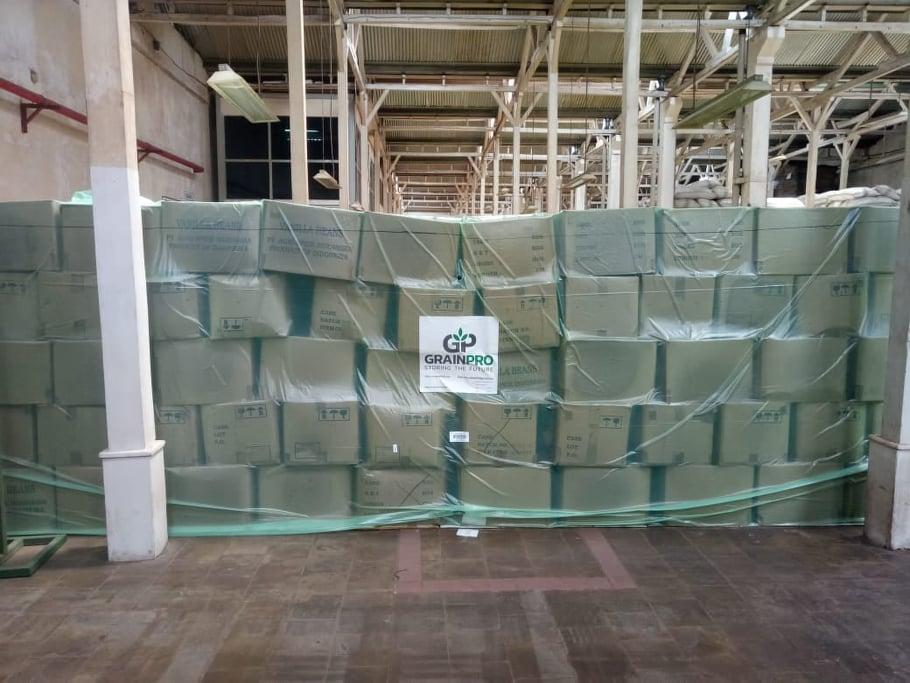
‘GrainPro Cocoon Indoor’ being used on organic spices. GrainPro Cocoon Indoor is a lightweight and economical alternative made from multilayer PE (polyethylene) liners that can last up to 2-3 uses
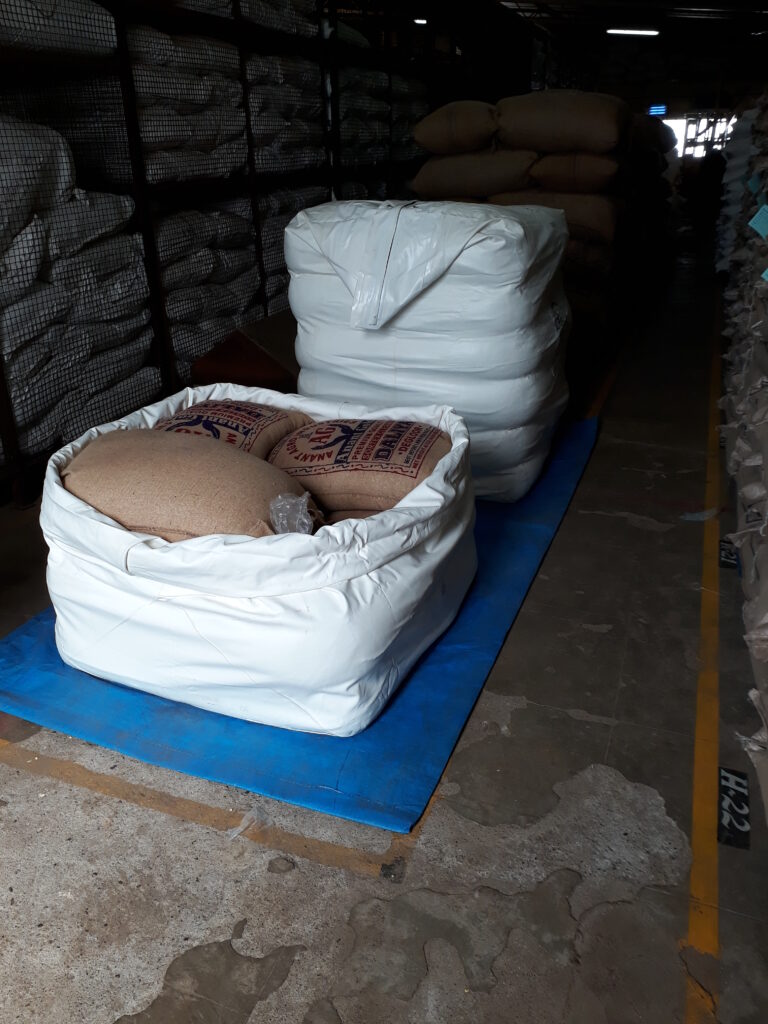
Organic food processors and exporters can choose a product that fits their operations and requirements, as the GrainPro Cocoon comes in capacities from 1MT to 300MT
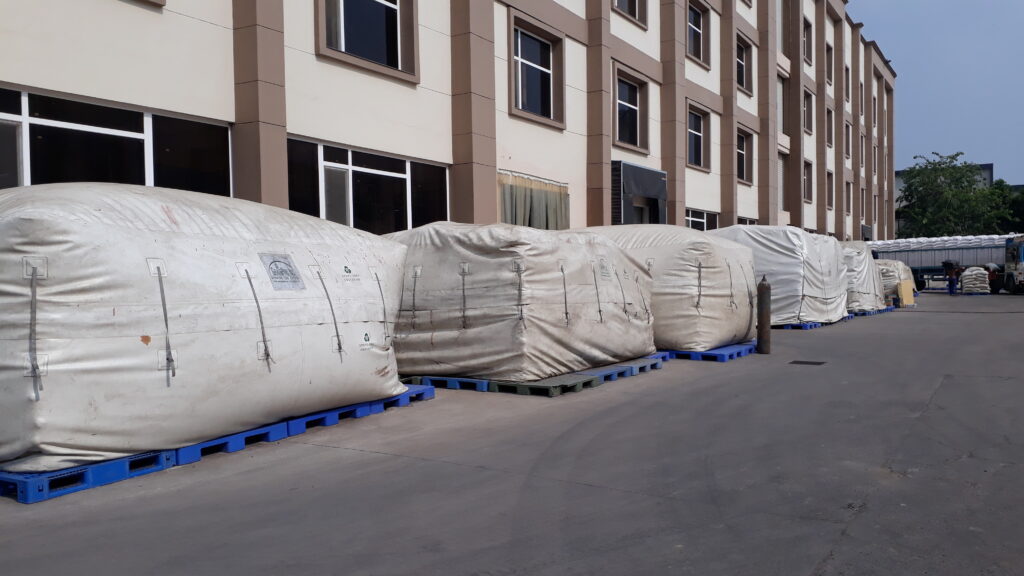
GrainPro Cocoons being used by the exporter, Mehrotra Consumer Products Private Limited, which also has a domestic organic food brand called ‘Organic Tattva’
Organic food processors and exporters can choose a product that fits their operations and requirements, as the GrainPro Cocoon comes in capacities from 1MT to 300MT.
It also comes in variations in terms of usability – the GrainPro Cocoon Indoor, a lightweight and economical alternative made from multilayer PE (polyethylene) liners that can last up to 2-3 uses.
Another variant is the GrainPro Cocoon Lite, made from Cross Laminated Polyethylene with a barrier that can be used for 5 years.
And lastly, the durable and cost-effective GrainPro SVC Cocoon made of flexible PVC, which can withstand 10 years or more of use.
All GrainPro Cocoons are easily installable and collapsible for safe storage when not in use. They can also be easily transported to different locations as needed. This saves time and labour since palletised commodities can be easily enclosed inside the GrainPro Cocoons. They can be used indoor or outdoor, on any flat space.
The author is Country Manager – South Asia & Middle East, GrainPro India Post Harvest Technology Pvt Ltd.
CONTACT DETAILS FOR GRAINPRO
COCOONS
GrainPro India Post Harvest Technology Pvt Ltd
We Work Berger Tower, 18th Floor, Office No – 18A109, C-001/A2, sector 16-B Noida, Uttar Pradesh 201301, India
Mobile: +91 – 99675 38339
Email: [email protected]
Website: www.grainpro.com
Write in to [email protected] to avail of GrainPro’s free consultation on your company’s unique storage/shipping requirements.


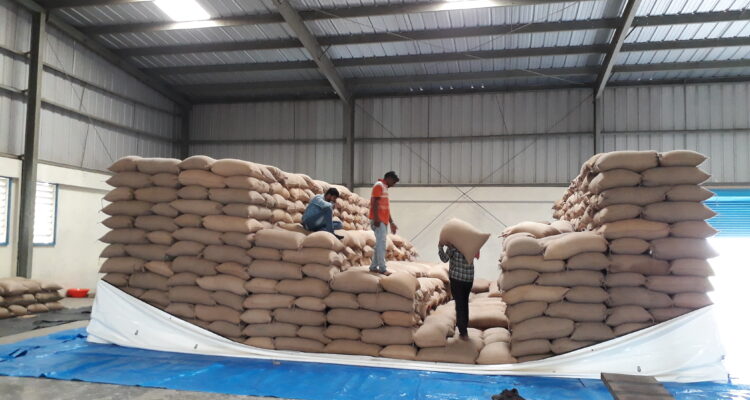
Good information
would like to buy one.